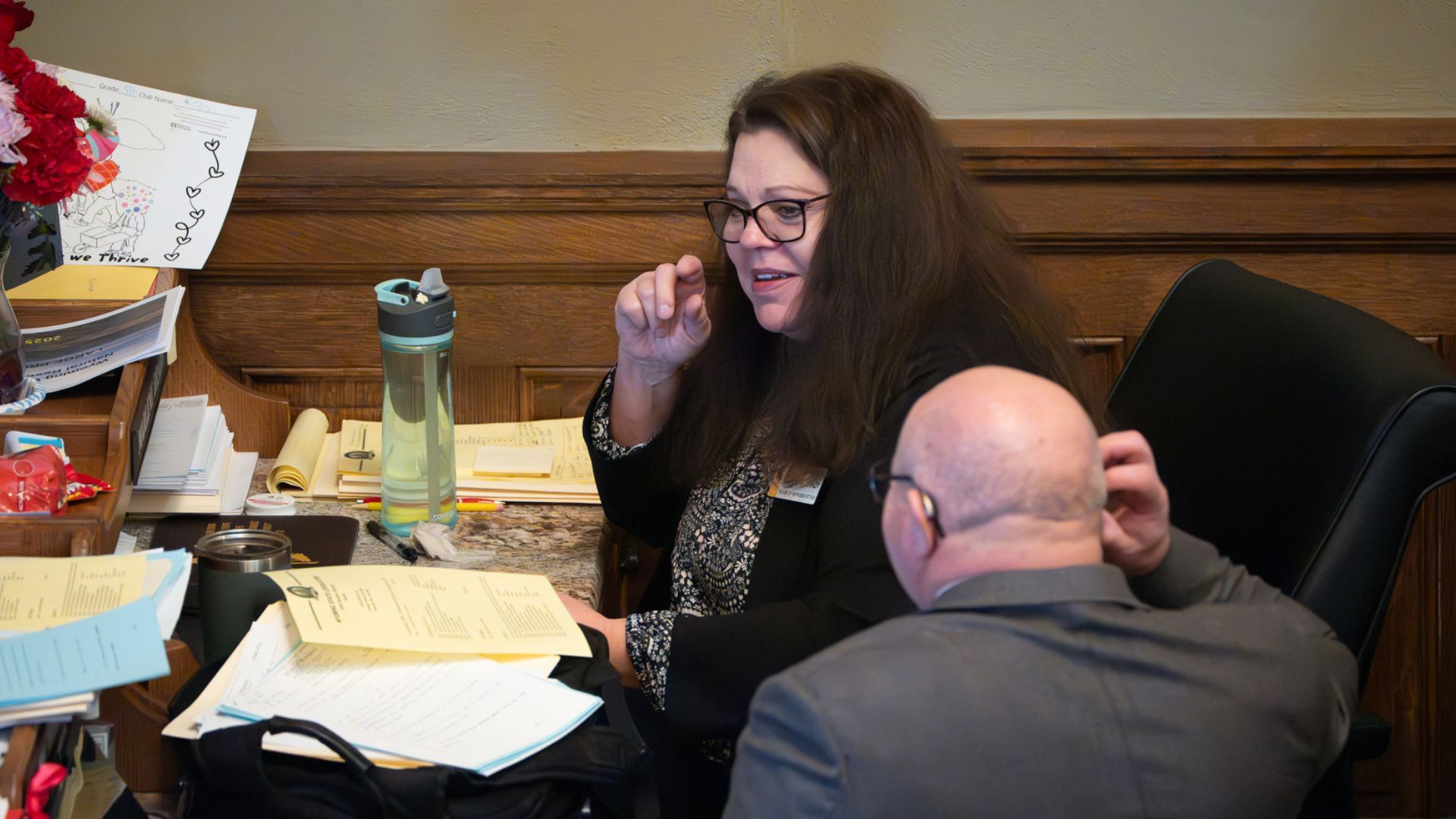Wyoming lawmakers weigh expanding public record laws

Rep. Marlene Brady, R-Green River — Photo by Michael Smith
JACKSON (WNE) - Residents from across the Equality State urged lawmakers on Thursday to require public records requests to be handled faster and to subject currently private government associations to public record laws.
The Wyoming Legislature’s Joint Corporations, Elections and Political Subdivisions Committee spent more than four hours weighing the demands for more transparency and the burden a change to the law could place on local governments with few employees.
“I want to suggest that both our Public Meetings Act and our Public Records Act are lacking,” Sandy Ress, a Jackson resident, wrote in a letter to the committee. “They lack specificity that’s required for government officials to know and understand what is and is not permitted.
“They are too skeletal and a lot of meat needs to be added to the bones for them to become healthy and effective,” he added.
Ress is familiar with public records from a legal battle with St. John’s Health’s Board of Trustees, which he sued in 2023, alleging that the elected board has entertained public business behind closed doors, and that public records and record keeping of the public facility are cumbersome to access. Melissa Owens, the judge for the Ninth District Court, sided with the hospital.
While other residents shared frustrations with the public records process, many employees of local government attended the meeting to share their goals for transparency and how they worked with residents on their requests. Many said they get them done before the current 30-day deadline. Some residents also shared positive experiences at the state, city and school district level.
Cheyenne Mayor Patrick Collins said his clerk had already received more than 2,000 public records requests this year. He walked through the detailed process to research what department needs to handle it, how the documents will be collected and whether any of them need to be redacted. He said 25% of the clerk’s job is processing records requests, which can take away from other responsibilities.
One of the new bill drafts the committee will continue to work on will add more pressure, he said.
It revises the public records act, requiring a government entity to acknowledge a public records request within three days; lowers the processing time from 30 days to 10 unless a government entity requests an extension from the state’s public records ombudsman; creates uniformity for fees and costs; and establishes harsher penalties if the request isn’t released on time.
“Honestly, that’s just asking for failure on our part,” Collins said. “We can’t handle the volume that’s coming into those in 10 days. We just can’t do it.”
He said the bill would also impair the quality of the response.
“We’re going to have to rush,” he said. “And I’m not sure we’re going to do as good as a job as we can.”
The second bill draft the committee considered, but let die, would have forced government associations to hand over records. Some lawmakers and residents wanted more transparency about budgets and how associations, made up of elected officials, reach certain positions on bills that they lobby for or against during the legislative session.
“These associations are invisible and unaccountable to the public,” Rep. Marlene Brady, R-Green River, said. “An example of negative output is the Western Governors Association, which conspired and inflicted net-zero carbon policies windmills and solar on Wyoming and the West. Wind turbines are a monument to corrupt science and illustrate the effect of group thinking promoting false narratives at public expense.”
This story was published on August 17, 2025.







